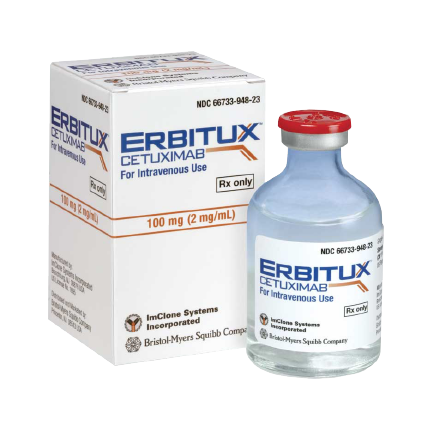
Cetuximab binds specifically to the EGFR on both normal and tumor cells, and competitively inhibits the binding of EGF and other ligands, such as TGFα. This inhibits the activation of the receptor, resulting in inhibition of cell growth, induction of apoptosis, and decreased production of cell matrix components and VEGF.
Cetuximab has indications for use in both head and neck cancer and CRC. In patients with RAS mutation-negative (wild-type), EGFR-expressing, metastatic colorectal cancer (as determined by FDA-approved tests), cetuximab is indicated in combination with the FOLFIRI regimen for first-line treatment. In the same population of patients, cetuximab is indicated in combination with irinotecan for patients who are refractory to irinotecan-based chemotherapy, and as a single agent in patients who have failed oxaliplatin- or irinotecan-based chemotherapy, or who are intolerant to irinotecan.
The cetuximab prescribing information has boxed warnings related to the potential for infusion reactions, cardiopulmonary arrest, and sudden death. Serious infusion reactions occurred with the administration of cetuximab in approximately 2.2% of patients in clinical trials. In addition, cardiopulmonary arrest and/or sudden death occurred in 2% of patients with squamous cell carcinoma of the head and neck treated with cetuximab and radiation therapy in one study, and in 3% of patients with squamous cell carcinoma of the head and neck treated in another study in combination with platinum-based therapy and 5-FU.
